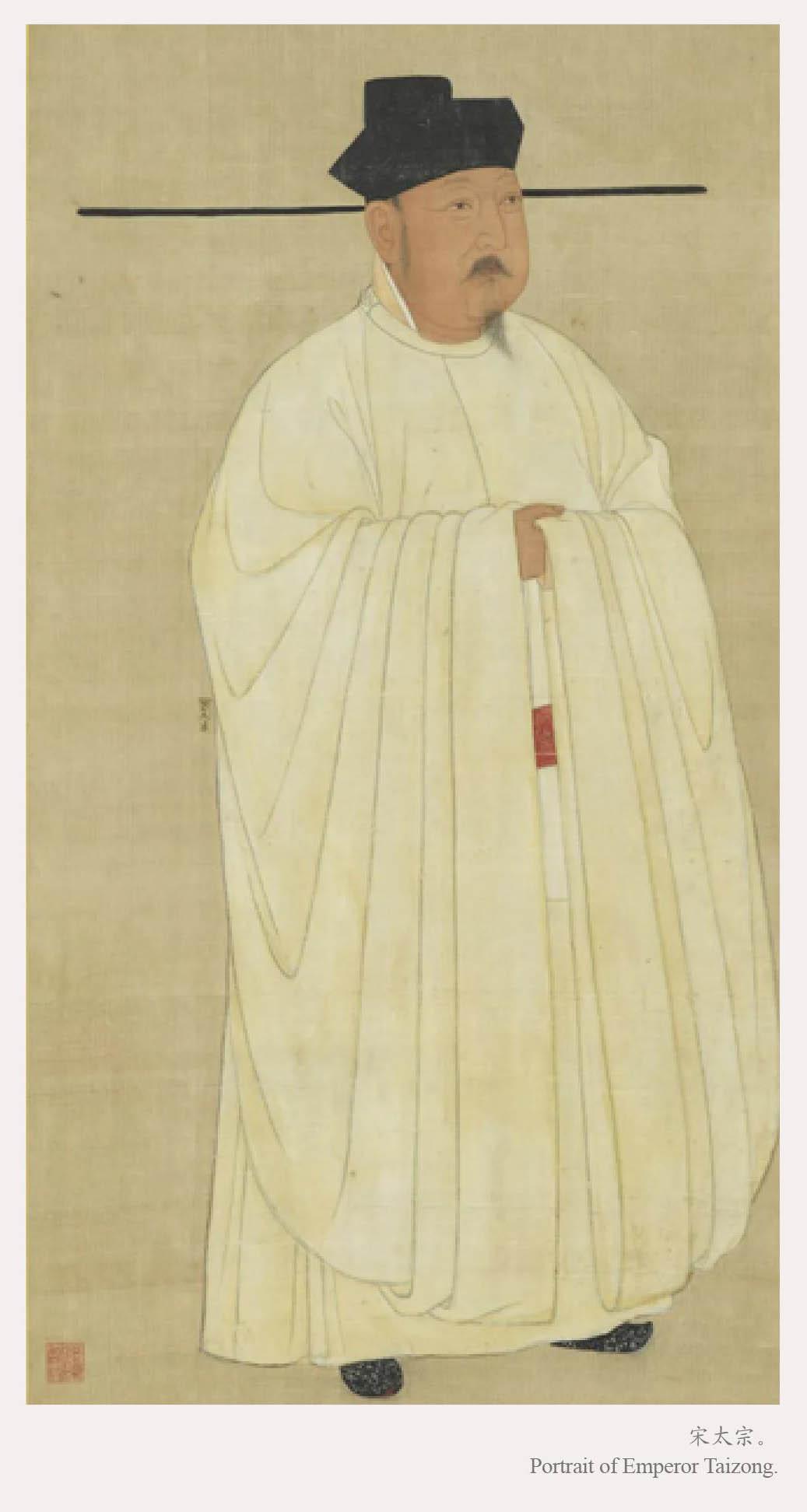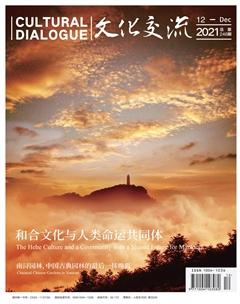梦回宋朝
马璠




唐朝和宋朝往往并称“唐宋”,这两个朝代毫无争议是中国封建社会发展的顶峰,树立了中国传统政治、经济和文化的标杆,令后世景仰艳羡不已。但具体地讲,人们对这两个朝代的印象是大不相同的。唐朝自不必说,国人长久以来都有“梦回大唐”的情结,总想再次感受文化鼎盛、开放自信、万邦来朝的盛唐气度。
但对于宋朝,人们的看法却有些复杂。宋代经济文化发达不假,但大家总觉得这个朝代不像唐朝那么强盛、雍容、大气。这不奇怪,宋朝国祚虽延续三百一十九年,但多数时候对辽、金、西夏忍气吞声,中间还被生生“腰斩”,徽、钦二帝被金人掳走,客死他乡;宋室被迫南渡之后,不思复土中原,却把“杭州作汴州”,偏安一隅。中国历史上这种“两截”朝代的后一截给人的感觉往往是乏善可陈、日薄西山,进而影响了整个王朝的形象。
老百姓都知道,南宋有大奸臣秦桧构陷岳飞,令人扼腕叹息。北宋也好不到哪里去,开国没多久不就有潘仁美陷害杨家将吗?到了北宋末年,不是还有高俅等奸臣官逼民反逼出了水泊梁山一百单八将吗?更不用提“北宋六贼”这种扎堆出现的奸臣。仿佛有宋一代,对外满是畏缩忍让、纳贡求和、苟且偏安,对内盘剥民力、朋党倾轧、民怨沸腾……
赵宋历史果真如此不堪吗?
这恐怕是因为我们对宋朝历史的认识和解读多数来源于评书、戏曲、小说、电视剧,而不是《宋史》《宋会要》等历史典籍。我们都习惯于看热闹的故事,以至于把演义当成真正的历史。看故事的我们能一口气说出好多宋代的文臣武将、才子佳人的名字,不论有些人物是否真实存在过。然而故事里的宋朝皇帝们的形象却很模糊,我们好像对宋朝的皇帝认识得不多,除了知道“稍逊风骚”的宋太祖叫赵匡胤之外,我们还能立即说出一两个其他皇帝的名字吗?
演义故事极大地掩盖了宋朝的真实形象,特别是赵宋皇室的真实形象。
好在陈华胜的新著《大宋宫词 · 赵宋第一家族》系列为我们还原了一千年前赵宋皇室面临的内忧外患,揭秘了帝王家的爱恨情仇。读完书,深感酣畅淋漓,好久没有这样不忍释卷地读新书了。
这部丛书目前暂时出了三本,分别讲述了宋太宗、宋真宗和宋仁宗三位皇帝的鲜活故事,勾勒了大宋王朝前一百年风云变幻的历史轮廓。读罢便可知道,宋朝开头的这几位皇帝虽不及秦皇汉武的雄才大略,可也绝不是演义故事里的昏庸无能之辈。
我们先粗略地回顾一下这三位皇帝的“关键词”。
宋太宗:“烛影斧声”“雍熙北伐”
宋太宗赵光义的关键词是“烛影斧声”和“雍熙北伐”。和唐太宗明刀明枪杀兄上位不同,赵光义的篡位是一场偷偷摸摸的谋杀,只留下了一宗谜案。
不过赵光义上位之后,倒是一心想做唐太宗那样的圣主明君,降伏了剩余的割据政权之后,还想收复燕云十六州。结果大家都知道,雍熙北伐失败,赵光义腿部中箭,仓皇回撤。不过,打不过辽国倒不能完全归咎于赵光义“不知兵”,他哥哥在兵变立国之后,立即“杯酒释兵权”,从根本上变革了帝国的军事制度,使“将不识兵,兵不识将”,目的是避免武将们也把黄袍披到自己身上。
简单地说,当时宋朝的战争机器不如辽国的好用。
宋真宗:“澶渊之盟”“天书封祀”
宋真宗赵恒的关键词是“澶渊之盟”和“天书封祀”。即位之初,赵恒勤政治国,开创了“咸平之治”。后来面对辽敌犯边,本来对边事挺谨慎的他,架不住人忽悠,于是热血上头,决定御驾亲征。然而,除非是李世民那样货真价实的军事家皇帝出征,否则御驾亲征的象征意义一定大于实际意义。赵恒虽说喜欢排兵布阵,但他不是伯父赵匡胤那样的武将出身,而是和平环境里成长起来的守成之君,出征的结果不难预料。
不过,赵恒的脑子不是一根筋,打不过可以谈。用可以负担的岁币换取和平,虽不得已,但也不失为务实之举。何况这段和平维持了一百一十九年之久,对大宋的繁荣至关重要。双方其实都不想打仗,“澶渊之盟”的订立不仅避免了生灵涂炭,也节约了巨额的军费开销。双方还在边境互市,宋朝对辽国一直保持贸易顺差,岁币的钱也就赚回来了。军事斗争是人类斗争的最高形式,但根源都能归结到最底层的经济因素,能用适合的经济手段解决政治争端而不诉诸武力,是政治家的智慧。这当然是后人从大的历史发展格局上评价“澶渊之盟”的,但在当时这被很多人说成是丧权辱国的“城下之盟”。
和平的环境促进了经济的繁荣,赵恒一方面有点飘飘然,另一方面也想从“澶渊之盟”的阴影中走出来,心想着做些什么以挽回颜面,但他选择的是自欺欺人的封建迷信活动——天书封祀。他自导自演了天书降临的祥瑞,并以此为依据举行了封禅大典,“一国君臣如病狂然”。这样做的后果当然是劳民伤财,也砸了“封禅”这个中国古代最高级别祭礼的品牌,后世帝王再不屑于此。
宋仁宗:“仁宗”
宋仁宗赵祯的关键词就是他的庙号“仁宗”。他是历史上第一位“仁宗”,获得了儒家价值观的最高赞誉,可见当时士大夫对他的喜爱。他在即位之初还是由太后刘娥垂帘听政的时候,就把政治斗争的残酷看得清清楚楚,把朋党之争对社稷的危害想得明明白白,所以仁宗一朝始终在防范庙堂之上形成尾大不掉的利益集团。
但仁宗对士大夫是宽容的,他遵从了太祖“不杀士人”的祖训,对大臣的处理以组织调整居多,而不搞肉体消灭。言官谏官可以放心上书言事,不必担心有性命之忧。苏辙在试卷中指责皇帝怠政,仁宗却依然点了他的卷子;蜀中有不得志的老秀才写反诗,仁宗看了反而给了老头儿一个官做;几个后宫佳丽想要升迁加俸,仁宗写了手谕,结果外廷说不能执行——圣旨居然都不好使了。以封建社会的标准来讲,这些故事实在是令人难以置信。
赵祯做了四十二年皇帝,宋人对他的评价是“百事不会,只会做官家”。只会当皇帝,这何尝不是对一个帝王的最高赞誉?
三位皇帝共同的关键词:文治
这三位皇帝共同的关键词又是什么呢?应该是“文治”。重文抑武是宋朝开国者定下的国策,这一国策被后世几个皇帝忠实继承下来。尽管北宋初年因为统一江山的需要,还南征北战几十年,但自“澶渊之盟”之后,总体上的和平成为那个时代的主流,百姓盼望已久的太平日子终于降临了。我们回望那个时代,会发现那几乎是中国古代社会里读书人日子最好过的时代。朝廷废除了科举的许多限制条件,扩大錄取规模,更多的平民子弟可以通过科举正途实现阶级跃迁。文人士大夫在相对宽松的政治氛围中创造了令后世难以企及的文化成就。
與“文治”相伴的,是贵族门阀的衰落,以及平民化时代的到来。在太平的年代,只要不折腾,社会经济肯定会迅速发展的,随之而来的是各种创造层出不穷。最值得一提的是宋代印刷术的全面成熟,这是文字资料廉价化、平民化的物质基础。如果没有廉价图书的刊行,恐怕也没那么多平民子弟买得起书、读得起书,也就不会有大规模的平民入仕。宋代不光印书,还印报纸、布告、传单、纸币……俨然一个“现代”社会。
在封建时代,这样的社会的出现在很大程度上得归功于赵宋皇帝们的“不折腾”。
中外史学界对宋朝的看法是大有出入的。比如钱穆说:“宋室内部之积贫难疗,宋代对外之积弱不振,始终摆脱不掉贫弱的命运。”而法国学者谢和耐却说:“十三世纪的中国其现代化程度是令人吃惊的……在人民日常生活方面,艺术、娱乐、制度、工艺技术等方面,中国是当时世界上首屈一指的国家。”十三世纪已经是南宋末年了,居然还得到如此高的评价。通过走近真实的历史,大家会更加了解到,我们虽然在近代有过贫弱,但我们祖上真实地“阔过”,那种“阔”不是暴发户式的,而是贵族式的。
这个贵族就叫“中华民族”。
《大宋宫词 · 赵宋第一家族》正是意欲为我们解读宋朝的真实历史。相信这部书为我们讲述的赵宋皇室的故事不会止步于前期这几位帝王,期待后面的帝王也能在陈华胜沉稳大气而又机智幽默的语言中和我们见面。
(作者系科普作家、历史爱好者)
A Journey Back to the Song Dynasty
By Ma Fan
Often referred to in combination as “Tang Song”, the Tang (618-907) and Song (960-1279) dynasties were the undisputed Golden Ages in ancient Chinese history. They set the standards for China’s traditional politics, economy and culture, and have been admired and envied by later generations. However, the perceptions of the Chinese public on the two dynasties are markedly different.
Most, if not all, speak of dreaming to return to Tang dynasty, to have a taste of the cosmopolitan, the open and the magnificent empire. But their attitude, when it comes to the Song dynasty, is quite ambivalent. It is true that the Song dynasty was economically and culturally developed, but in the public minds, it was still not as powerful and majestic as the Tang. It is true that the Song dynasty lasted for 319 years, even 20 years longer than the Tang dynasty, but most of the time, it had to tolerate the humiliations and insults from the Liao (907-1125), the Jin (1115-1234) and the Wester Xia (1038-1227). Not to mention the fact that Emperor Huizong (1082-1135) and Emperor Qinzong (1100-1161) were captured by the Jin troops and died in captivity.
After the imperial court was forced to move to the south, no serious attempt was made reclaim the lost land. Instead, Hangzhou was chosen as the new capital for the newly established Southern Song (1127-1279). Throughout Chinese history, when a dynasty was “cut in two halves”, it is often regarded as weak.
The average people all know the infamous traitor Qin Hui (1090-1155) who framed and persecute the patriotic general Yue Fei (1103-1142); the notorious Pan Renmen, a fictional character based on Pan Mei (925-991), who caused the death of the brave generals of the Yang family; and Gao Qiu (?-1126), the villain-in-chief in Outlaws of the Marsh …
But was the Song dynasty really that disappointing?
The reason for such a biased perception is most probably down to the fact that people’s knowledge about the Song dynasty largely comes from plays, novels, TV dramas, rather than from the more serious sources such as the History of Song. People all love fictionalized stories and indeed tend to treat them as facts. It won’t be a surprise that many wouldn’t be able to name any Song emperors, except perhaps its founding emperor Zhao Kuangyin (927-976).
“The Emperors of the Song Dynasty” series by Chen Huasheng comes in very handy. It has vividly presented the true stories of the Song emperors, and, in the process, taken the reader on a journey back to the Song dynasty. Currently in its third installment, the series has so far focused on three emperors, Emperor Taizong (939-997), Emperor Zhenzong (968-1022) and Emperor Renzong (1010-1063), the second to the fourth emperor of the dynasty.
Now a recap of the three emperors’ history through some “keywords”.
For Zhao Guangyi, Emperor Taizong, the keywords were “sound of axe in dim candlelight” and “Yongxi Northern Campaign. Unlike his Tang counterpart, who killed his brother in broad daylight, Zhao Guangyi is said to have murdered Zhao Kuangyin surreptitiously before ascending the throne. Once on the throne, Taizong worked hard and strived to be “an enlightened ruler”. He attempted to take back the Sixteen Prefectures of Yan and Yun during the third year of the Yongxi era of his reign (hence Yongxi Northern Campaign). It not only failed, Taizong himself was shot in the leg by an arrow. But in all fairness to him, it wasn’t Taizong’s incompetence; the Song military power had been severely weakened when his brother Taizu founded the Song dynasty.
For Zhao Heng, Emperor Zhenzong, the keywords are “Chanyuan Treaty” and “Heavenly Texts”. Zhao Heng was diligent once his reign started, and a series of policies helped the economy prosper and the political system further stabilized. On the other hand, faced with invasion from the Liao on the north, he decided to lead the military personally. When the two sides fought to a standstill and no one seemed to score any decisive victories, they worked out a treaty and signed it at Chanyuan, the first large city across from the Yellow River. For the next 119 years, the Song paid annual tribute of silk and silk in exchange for peace, which undoubtedly contributed to Song’s rapid development. Indeed, neither side wanted war, and the treaty helped Song save on hefty military expenses. Moreover, Song’s trade surpluses with the Liao would soon earn back its tribute. Nevertheless, the treaty was met with strong opposition back in the Song territory and considered a big humiliation. To save him from criticisms, coupled with economic prosperity, Zhao Heng later resorted to such a ruse as the discovery of the so-called Heavenly Texts and conducted sacrificial ceremonies to glory him and the Zhao family, a costly and unrewarding exercise in the end.
For Zhao Zhen, Emperor Renzong, the keyword was “Renzong”, or “Benevolent Ancestor”, his posthumous title. He was the first “Renzong” in Chinese history, the highest honor Confucianism could bestow upon a ruler, which showed how much he was loved by scholar-officials then. From the very beginning, Zhao Zhen clearly discerned the harm factionalism could bring to his court and the country at large. Therefore, one of his primary goals was to prevent the formation of any big interest groups. However, he didn’t turn to brutal force to achieve it; Zhao Zhen was magnanimous with scholar-officials, for he never ordered any killed even when they spoke out against him or his policies. Indeed, some were promoted because their criticisms. “[He] could do nothing except for being an emperor”. Zhao Zhen was thus summed up by the Song people. Isn’t it the highest compliment an emperor could receive?
What did the three emperors have in common? It was “rule by civil means (as opposed to force)”, which was the national policy laid out by the founding emperor and had been faithfully observed throughout the Song dynasty. Indeed, after the “Chanyuan Treaty”, the Song people had enjoyed peace for a very long time. Social development and economic boom followed, with an increasing number of innovations such as printing and paper currency. It was the best time for Chinese scholars, as myriad of limitations on taking the imperial examinations were abolished and more commoners were allowed, further spurred by the popularization of printing.
Historians differ in their views when it comes to the Song dynasty. To the Chinese historian Qian Mu (1895-1990), “The Song dynasty was internally afflicted with entrenched problems, and externally weak, and it was never able to shake off the destiny of being a feeble empire.” But for the French sinologist Jacques Gernet (1921-2018), “Thirteenth-century China is striking for its modernism … In the spheres of social life, art, amusements, institutions and technology, China was incontestably the most advanced country of the time.” Perhaps what we, the general Chinese public, need now is to examine history as it is, use it to strengthen the national character and work tirelessly towards national rejuvenation.

